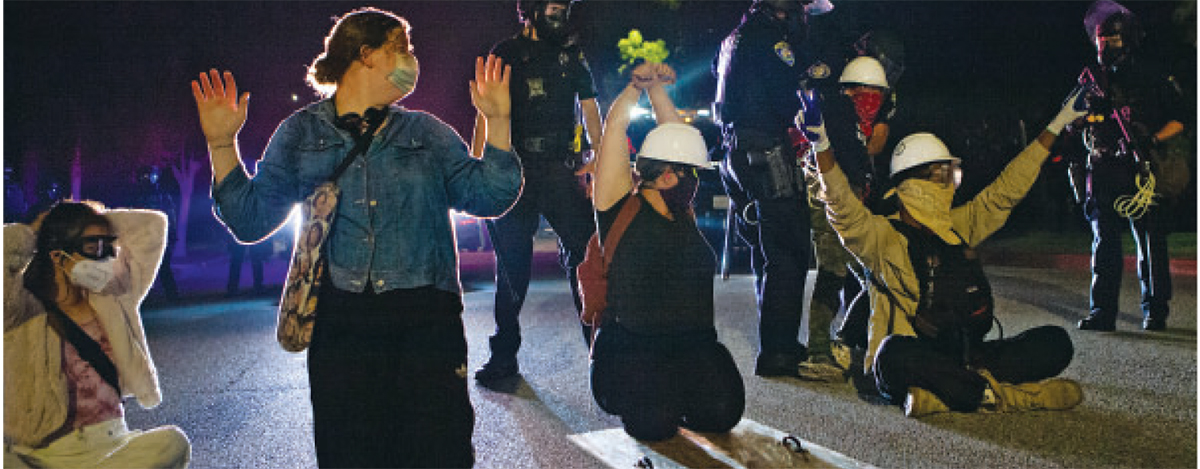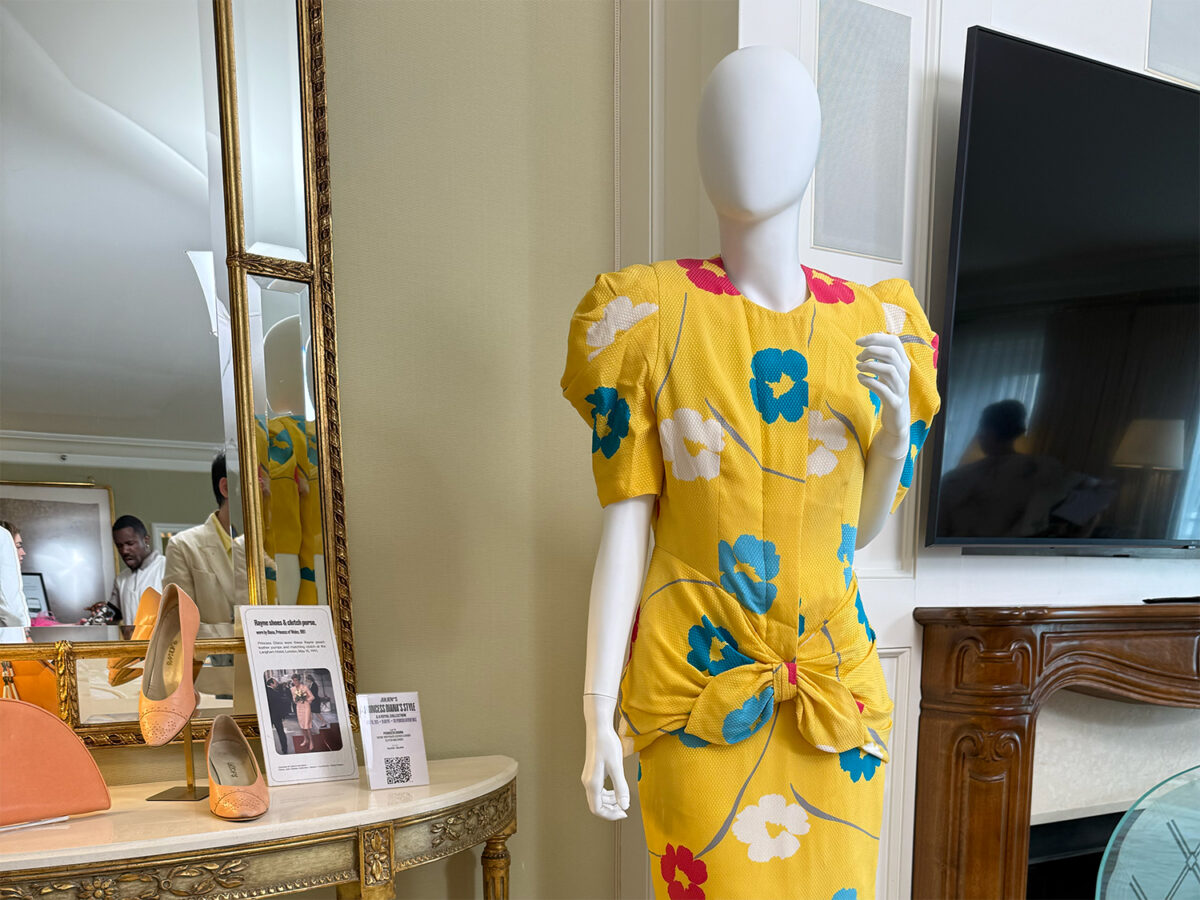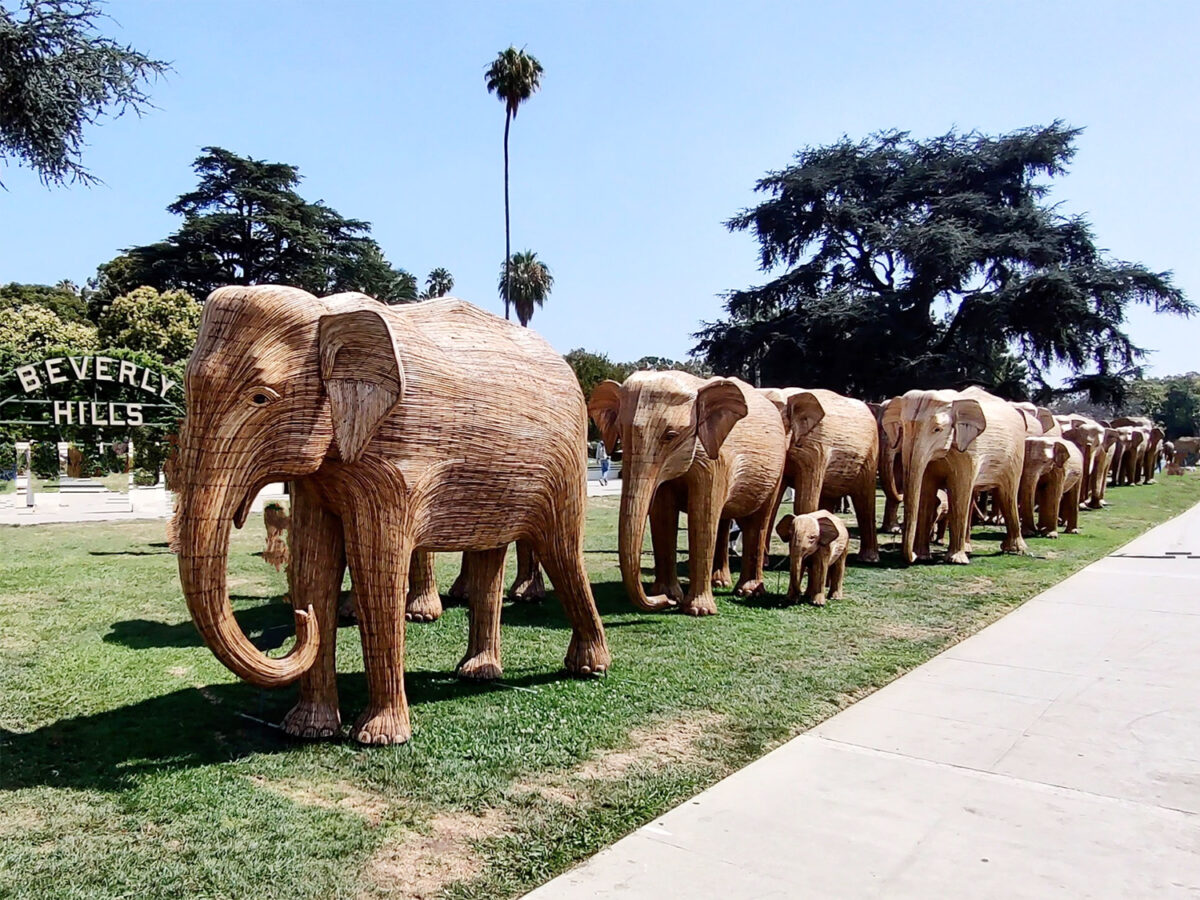Following the arrest of more than two dozen protesters last weekend, the National Lawyers Guild says there may be grounds for a civil rights lawsuit against the City of Beverly Hills for detaining them for as long as 24 hours. The protesters, who marched down a residential street late at night on June 26, were arrested for breaking curfew, refusing to disperse, and disturbing the peace.
“There’s no reason it would have taken 18 hours for [processing] 24 people,” civil rights attorney Jorge Gonzalez, a board member for the National Lawyers Guild, told the Courier. “That’s just too long.”
City spokesperson Keith Sterling told the Courier that due to the number of people in custody, “the department added additional staff to facilitate the process.”
On June 26, a group of around 100 protesters made their way through the City starting at 7:30 p.m. The group, known as the Black Future Project, shut down Santa Monica Boulevard multiple times throughout the night as they traversed down the thoroughfare and around nearby residential areas. By 9 p.m., protesters turned north on Rexford into a residential area, chanting “No Justice, No Peace,” and other slogans. The group came equipped with megaphones and a van carrying large speakers, which amplified the voices of speakers and also played music. Black Future Project had previously organized a protest in the City on June 12. The following day, the City issued an Emergency Order limiting gatherings in residential areas after 9 p.m.
Black Future Project organizers told the Courier that one of the reasons they returned on June 26 was to peacefully challenge the Emergency Order. As observed that evening by the Courier, after Beverly Hills police arrived in riot gear, the protesters formed into lines, turned away from the officers, got on their knees, and put their hands over their heads. After deploying a Long Range Acoustic Device, or a sound cannon, a group of officers emerged from behind the scrimmage line to zip-tie and carry off the protesters one by one.
By the end of the night, police had arrested 26 protesters.
As the hours passed, fellow protesters and activists began to clamor for the release of the protestors, citing, among other reasons, the health risks of holding them during a pandemic.
“These protesters were lawfully exercising the rights we all enjoy under the First Amendment,” the National Lawyers Guild said in a statement. “Their continued detention is punitive and places their health and safety in danger.”
The Beverly Hills Police Department began releasing the protesters between 6 p.m. and midnight on June 27, some 18 to 24 hours after the arrests were made.
According to Gonzalez, the police had no right to hold protesters overnight.
“Under the Penal Code, barring certain exceptions, a person who is arrested on a misdemeanor ‘shall’ – that’s the word – be given a citation, and once they sign it, shall be released,” he said. “There’s no reason for people to be held overnight.”
Gonzalez also represents Black Lives Matter Los Angeles in a federal class action filed June 5 against the City of Los Angeles for excessive force and civil rights violations. The suit involves the protests in Pan Pacific Park on May 30 that spread into the Fairfax District. The lawsuit alleges that law enforcement should have used the established “citation release” process guaranteed in the California Penal Code, which permits individuals suspected of a misdemeanor violation to be cited and released promptly, in the field or after booking, unless one of a limited number of restrictions apply. It also challenges the blanket curfews imposed after the protests, and the validity of law enforcement’s declaration of an “unlawful assembly” during the protests under Penal Code 409.
Protestors in Beverly Hills were cited under the same provision. The citations reviewed by the Courier also listed a charge of “breaking curfew” under Beverly Hills Municipal Code 2-4. 111.
Sterling, however, denies that the City’s Emergency Order constituted a curfew.
“This is not a curfew,” he said. “It’s an emergency restriction on assemblies and we believe this regulation is lawful.”
Gonzalez told the Courier that the National Lawyers Guild is currently considering a civil rights lawsuit against the City of Beverly Hills, on behalf of the protestors. “There’s definitely that possibility,” he said.
He also said he plans to recommend that the ACLU examine the constitutionality of the Emergency Order. As of press time, the ACLU of Southern California has not responded to a request for comment.
The protesters are slated to appear in court on August 26, according to the Beverly Hills Police Department.
Protestor Krizia Berg said she plans to challenge the citation she received.
“All of us will,” she told the Courier. “No one is going to just show up in court and take these charges. They’re unjust.”







